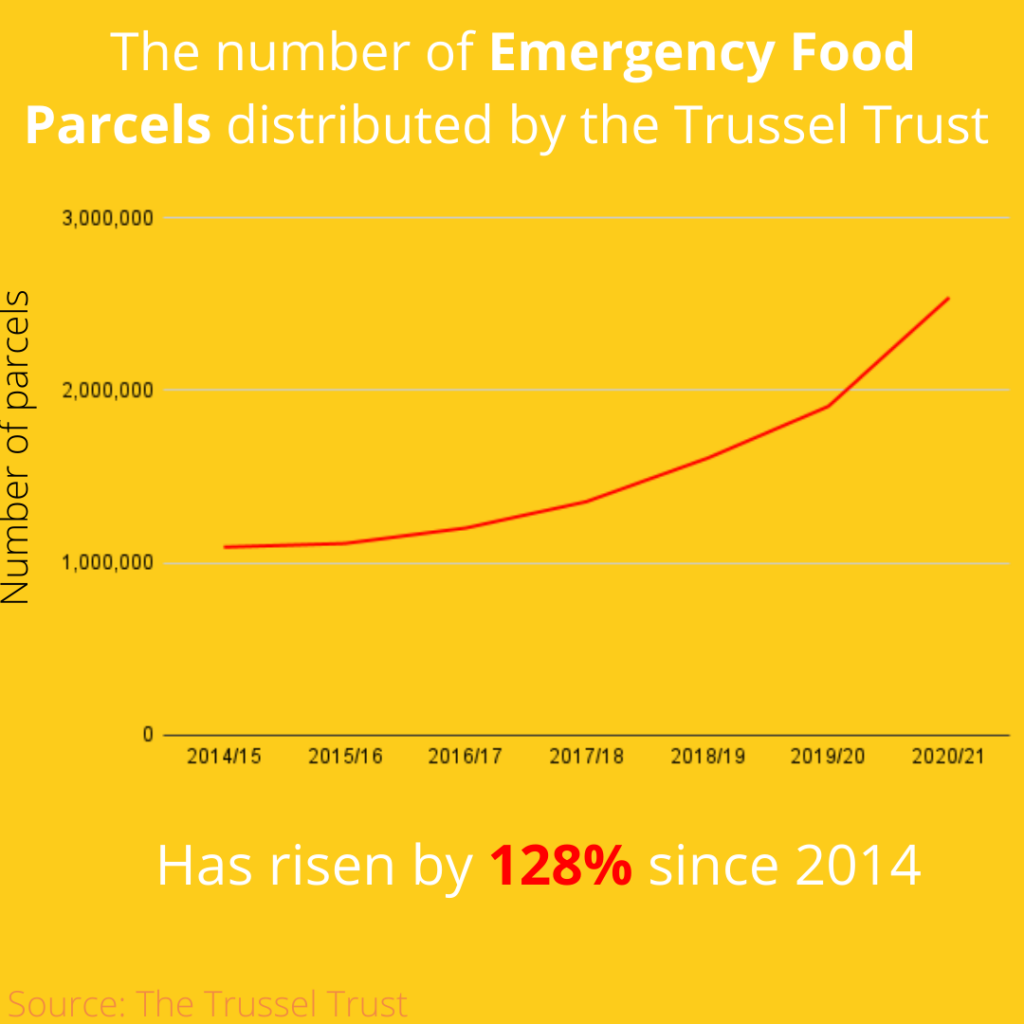As we draw closer to the end of 2021, we wanted to reflect on how food poverty in the UK has changed this year and why our mission to fight food poverty is more important than ever.

The number of distributed Emergency Food Parcels by the Trussell Trust has risen by 128% since 2015, from 1,110,000 parcels in 2014-5 to 2,540,000 in 2020-1. The Trussell Trust describe this as ‘a phenomenal scale of growth’.
During the Covid-19 lockdown in the Spring of 2020, food banks in the Trussell Trust network experienced
an ‘unprecedented growth’ in the need for food parcels.
Source: The Trussell Trust’s State of Hunger 2021 Report

The demographic groups most likely to live in food insecurity and/or be referred to a food bank include single parents, younger people, social renters, ethnic minorities and people in poor health.
Sources: The Food Standards Agency’s The lived experience of food insecurity under Covid-19 report and The Trussell Trust’s State of Hunger 2021 Report

Since 2018, there has been a 49% increase in the number of children who are dependant on food banks.
Sources: Environmental Audit Committee’s Hunger, Food Insecurity and Malnutrition in the UK report

How can you help?
- You can volunteer with your local food bank
- You can donate to your local food bank, using apps like Spareable
- You can support our non-for-profit’s fight against food poverty through becoming a member of our community cookery school, buying a recipe book or attending a cookalong
- You can volunteer with us to support your community
Your support will allow us to continue to fight food poverty in the UK and expand our operation nationwide, so that Bounceback Delivery Teams can be established across the country.

